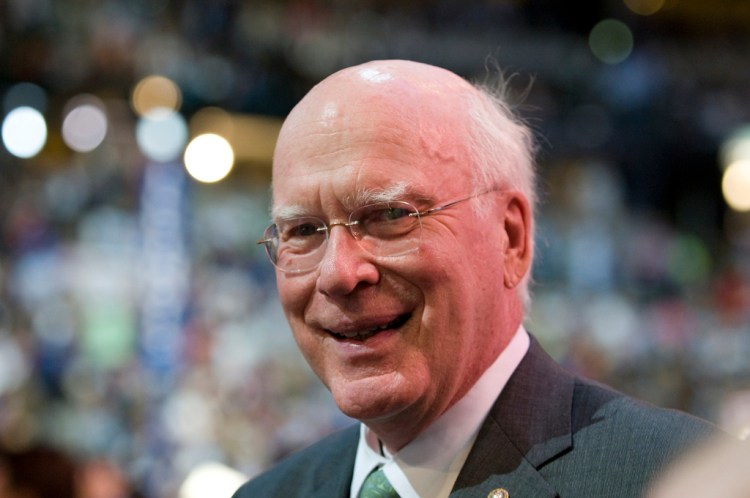Want smarter insights in your inbox? Sign up for our weekly newsletters to get only what matters to enterprise AI, data, and security leaders. Subscribe Now
The policy winds have blown in favor of big broadband carrier lobbyists this year. Most notably, Federal Communications Commission chairman Tom Wheeler announced a new set of ostensible net neutrality principles for ISPs, which actually allow them to charge for faster transmission of Internet services like Netflix.
But a big public backlash over net neutrality silenced those winds. And now with a new bill sponsored by some very powerful members of Congress — Senate Judiciary Committee chair Patrick Leahy (D-Vt.) and Rep. Doris Matsui (D-Calif.) — being introduced today, net neutrality may be back in vogue on Capitol Hill.
“Americans are speaking loud and clear,” Leahy said. “They want an Internet that is a platform for free expression and innovation, where the best ideas and services can reach consumers based on merit rather than based on a financial relationship with a broadband provider.”
The legislation, known as the Online Competition and Consumer Choice Act, would require that the FCC bar broadband carriers from selling so-called Internet fast lanes. For instance, Netflix would not be able to pay AT&T for faster delivery of its data packets to users than the data packets from smaller, competing internet video service that may not be able to pay for “premium” carriage.
The problem is that the new bill would not give the FCC any additional power to enforce net neutrality principles. One of the main problems around the net neutrality issue is whether or not the FCC has the mandate of Congress to prohibit Internet fast lanes.
But Leahy’s and Matsui’s bill, if passed, would be a clear political message that Congress wants the FCC enforce net neutrality. That may be worth something.
The wording of Leahy and Matsui’s proposal addresses the connections between consumers and their ISPs — the part of the Internet governed by the FCC’s proposed net neutrality rules. Net neutrality advocates believe the legislation would still direct the FCC to do away with special service agreements between broadband carriers and Internet companies.
“A free and open Internet is essential for consumers,” Matsui said. “Our country cannot afford pay-for-play schemes that divide our Internet into tiers based on who has the deepest pockets.”
The FCC’s current net neutrality proposal would (tacitly) allow the creation of a tiered Internet for content companies. FCC chair Wheeler has asked for public comment on whether or not the commission should ban tiered carriage pricing schemes as being “commercially unreasonable.”
Leahy’s and Matsui’s proposal will have a hard road to passage however. Republicans have long favored Big Telecom’s and Big Cable’s right to establish tiered pricing schemes, and the GOP controls the House. In May, Rep. Bob Latta (R-Ohio) introduced a bill that would prevent the FCC from reclassifying broadband. Reclassifying broadband to a Type II telecommunications service would open it to stronger regulation and would allow for the legislation of network neutrality principals. FCC Chair Tom Wheel has said he’s reluctant to reclassify because of the political catfight that would ensue, but would consider it if the commission’s proposed net neutrality principals don’t adequately protect consumers.


